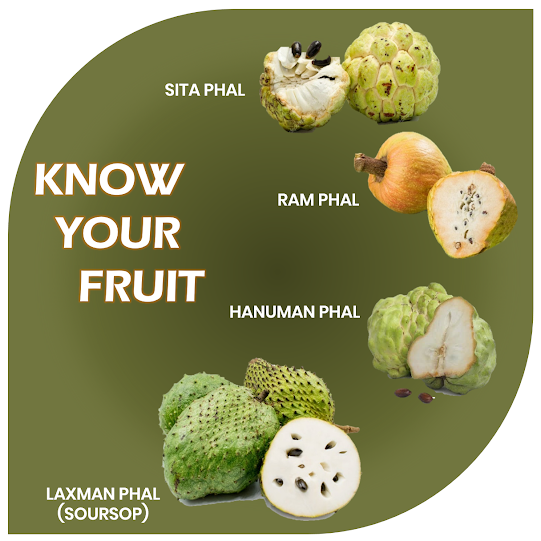Family
Annonaceae is rich in fruiting plants. Most popular amongst them are Ram phal,
Sita phal, Hanuman phal, and Laxman phal. This blog discusses the comparison
between all these fruits.
Sita phal
Annona squamosa is commonly known as Sita phal. Fruit is generally the size of the tennis ball with an irregular surface all over. The fruit pulp is fleshy and sweet with a grainy texure.
Ram phal
Annona reticulata is commonly known
as Ram phal. The fruit is little bigger than Sita phal. The outer fuit cover is smooth as compared to Sita phal.
Hanuman phal
Annona cherimola commonly known as
Hanuman phal. This fruit has slightly irregular surface. The fruit is sweet in taste and pleasurable to eat.
Laxman phal
Annona muricata is commonly known as Laxman phal or Soursop fruit. As the name muricata suggests, this fruit has soft spine all over the fruit surface. The fruit is sour in taste due to high vitamin C.





Comments
Post a Comment